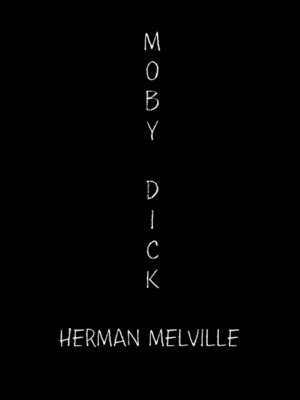
Sign up to save your library
With an OverDrive account, you can save your favorite libraries for at-a-glance information about availability. Find out more about OverDrive accounts.
Find this title in Libby, the library reading app by OverDrive.



Search for a digital library with this title
Title found at these libraries:
| Library Name | Distance |
|---|---|
| Loading... |
Herman Melville's masterpiece Moby-Dick was published in 1851 to little critical acclaim. It is the story of the wandering sailor Ishmael's voyage on the whaling ship Pequod, which is commanded by Captain Ahab. The Captain is inexorably obsessed with the Great White Whale who destroyed his boat and took his leg. This is what the book is ostensibly about, and with its long descriptions of whales, whaling, stringing one's harpoon, and a muddled plot, it has confounded readers since its publication.
Some argue that this book shouldn't be assigned in high school and they're probably right: it's long, filled with subplots and allegories; the language is dense and clumsy in places, and it reads like the epic dialogue from Paradise Lost. It is biblical in its depth and scope - it contains poetry, philosophy, comedy and tragedy, and the struggle it portrays is for nothing less than the soul itself. Moby Dick was more or less forgotten until the 1920s, and Melville published little after its failure. After working as a customs inspector in New York City, he died in 1891 almost totally unknown. It is almost as if the world, like the high school kids who now read it, needed to mature somewhat to appreciate Moby Dick.







